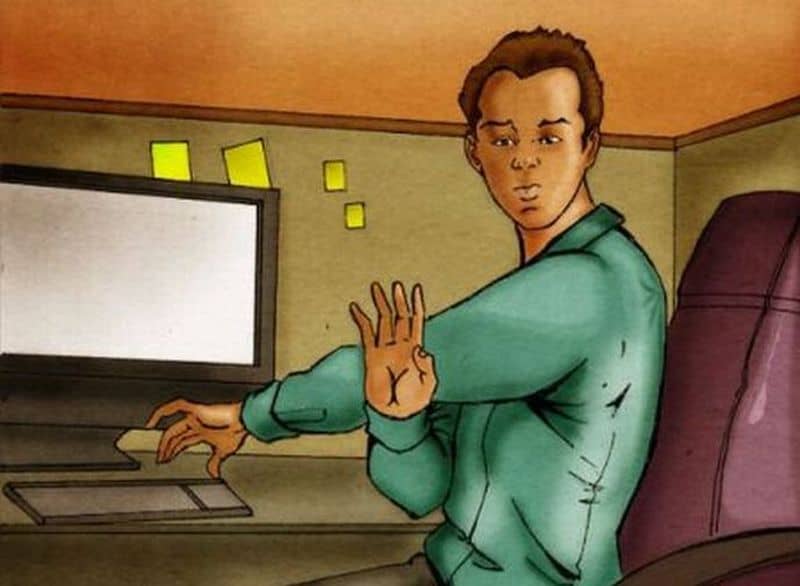There is no health without mental health, says the WHO. Your mental health is as important as your physical health, in order to live a happy and balanced life.The problem is not many are aware of the serious impacts of poor mental health and the importance of good mental health.
1 out of 4 people is likely to face some kind of mental health issues at some point in their lives.The good thing, effective strategies and treatments help a lot in preventing and reducing the suffering from poor mental health.
Why do you need to keep good mental health?
The importance of good mental health is clear from the following facts released bythe WHO, APA, and CDC, highly-recognized organizations guiding the world in health and wellness.
- Depression affects 264 million people globally and is one of the leading causes of disability. Depression and anxiety lead to a massive global economic loss of US$1 trillion annually.
- Suicide is the fourth leading cause of death among 15-19 year-olds according to WHO.
- More than 700 000 people die due to suicide every year.
- 77% of global suicides occur in low- and middle-income countries, reports WHO.
- Severe mental disorders lead to premature deaths 10 to 20 years earlier than the general population.
- A huge demand-supply gap in mental health workers worldwide is leaving many individuals with some kind of mental disorders unattended.
Poor mental health is detrimental in all respects making you less productive and dissatisfied .
Mental disorders do not discriminate age, sex, and color
Proper information and awareness are imperative to empower every single individual of the global community to take charge of their mental health and lead a better quality of life.
- Approximately 1 in 5 US adults face mental illness in a year irrespective of race, creed, or color. (source: National Alliance on Mental Illness)
- Nearly 1 in 5 children and adolescents all over the world suffer from a mental disorder. This is conspicuous among the shy and introverted kids.
- Nearly 50% of mental disorders begin from the age of 14 but most of them go undiagnosed and untreated. (WHO report)
- CDC reports, suicide is the third leading cause of death in children aged 5-19 years.
- More women get affected by depression than men.
- However, according to APA (American Psychological Association), there is no remarkable difference in depression rates between men and women.
- Depression in men is largely underreported. 49% of men feel more depressed than they admit about it, reports APA.
- Causes of depression in men and women vary a lot. Their experience and expressions vary too.
- Nearly 1 out of 10 dads go through post-natal depression.
- Men are 3.7 times more likely to die from suicides than women despite women make more attempts. This is partly because men choose more lethal modes.
Mental wellness vs mental health
Before listing the good mental health tips it is important to know the difference between mental wellness and mental health. Mental wellness is an oft-used term but is yet to be understood properly. Sometimes it gets overlapped with mental health or mental wellbeing. Mental health is the way how we process information and take actions. Mental wellness is a much bigger canvas covering many wellness dimensions.
It is a continuous process guided by conscious choices on how we think, feel, express our emotions, connect, and act to grow, build resilience and thrive. Mental wellness could be associated with psychological well-being led by growth, purpose, self-acceptance, autonomy, control over the environment and positive relationships.
20 Tips on how can you keep good mental health
Poor mental health means you will falter in decision-making, emotion management, and differentiate between the good and bad which will ultimately affect your well-being. Awareness and knowledge of good mental health will make you focused and self-sufficient in all aspects of life.
It is normalto face some kind of mental disturbances at time but that should not be prolonged. Your awareness and willingness will help you bounce back from rough situations. Read on to find out about 20tips you can follow to maintain good mental health:
-
Shun all myths and hesitations
Society-imposed stereotype roles, ridiculing mental issues, and age-old beliefs are big deterrents to the mental health of an individual. This is where education and knowledge matter. Else the person will continue to suffer in silencefearing rejection and ridicule and get doomed forever.
Whether you are a male or female or a kid, accept that you are emotionally vulnerable and there is nothing abnormal in it. Do not hesitate in seeking help and support from the right person. Family members, friends, and those in the close circle must extend their helping hand to help a person come out of mental disorders.
-
Self comes first
Practice self-care by beingkind to yourself, respecting yourself and avoiding criticizing yourself. Just be good to yourself. Do things which you love and which you’re good at, can improve your self-esteem. Playing some sport can help you become stronger mentally as sports forces you to focus and concentrate. Dancing, planting a garden, learning a musical instrument can help to keep good mental health.
Special tips:
- Understand your self needs more love, compassion, and care than that you think.
- Listen to the signals of your body and soul.
- Acknowledge the natural flow of emotions instead of reining it.
-
Get rid of guilt
Guilt-feeling often arise from outcomes that are inadvertent. Chronic guilt can lead to the feeling of inadequacy and depression detrimental to mental health. It is important you deal with guilt properly for good mental health.
Special tips:
- Be more proactive to prevent any untoward events.
- Take constructive actions.
- Accept things that are not in your control.
-
Take good care of yourself physically
Eating healthy meals, avoiding alcohol and cigarettes, exercising, drinking lots of water and getting enough sleep can do wonders for your mental health. Exercising decreases anxiety and depression and improves your mood and getting enough sleep is also helps to decrease depression.
Special tips:
- Never skip breakfast
- Eat food full of proteins
- Increase intake of fluids
Read more on diet and nutrition for mental health
-
Nurture your intellect
Read more. Learn new skills, best if you can keep a journal of whatever you learn each day. It may be simple tips on productivity or knowledge-building topics. Keep yourself engaged in creative pursuits, and always try to create purposeful outcomes.
Special tips:
- Find what interests you.
- Take professional guidance to nurture your creative side.
-
Be among people
People who strong social and family connections are healthier than those who do not have a support system of friends and family. You could build a support system by joining clubs, classes or support groups.
Special tips:
- Create joyful moments in family by planning small events
- Talk to your friends regularly.
- Join like-minded forums to contribute to a beneficial cause.
-
Try making new friends
Instead of sticking to the ‘less is more’ approach, why not think of ‘more is beautiful’? Shun all inhibitions and create opportunities for healthy interaction to reach out to more people. You will be able to view life in a broader canvas.
Special tips:
- Join local clubs
- Interact with anybody you cross paths, it will help to beat the fear of rejection.
- Use social media wisely while searching for friends and groups.
-
Volunteer
Volunteer your energy and time to help others. You’ll feel better when you’re helping someone in need and it’s a good way to meet like-minded people.
Special tips:
- Check with your neighbour to see if they need any help.
- Join programs to uplift the underserved people.
- Join volunteering and social service groups.
-
Keep a gratitude journal
Write down the at least three things every day for the things you’re grateful for. Being grateful and having a thankful attitude can help you in inculcating a positive attitude which is great for your mental health. You can also adopt simple ways to show gratitude.
-
Manage stress
You can’t get away from stress. Stress is present in our lives in some form or the other – it could be job related, relationship related or just day to day things like stress commuting and so on. Discover what stresses you and find out ways to handle it better. Try taking Tai Chi or yoga classes, write a journal, and try to see the humorin day to day events. Laughter boosts your immunity, eases pain and reduces stress.
-
Live in the present
Living in the present rather than focusing on the past or the future will help you enjoy life. Focusing at things at present helps you enjoy life’s moments which would otherwise pass you by.
Special tip:
- Slow down. Take a pause.
- Be more mindful to observe new things around you.
- Create moments of awe.
-
Balancing life and work
If you spend too much energy and time on one aspect of your life, your work-life balance would be off. You must find ways to balance your personal life with work so that neither suffers, and work out a strategy which would enable you to achieve that.
Special tips:
- Practice time management.
- Cut off unnecessary distractions and inputs.
- Make leisure hours a top priority.
- Make time for appreciation
-
Have fun
Take time off to do fun things. Listening to music, attending stand-up comedy shows, catching up on your favorite shows, meeting friends and plan activities with them, read some good books or comic strips are ways to have fun. Use your imagination and find ways to have fun. Going hiking or trekking, being out in nature is also great for mental health.
-
Set goals you can achieve
Set your academic, professional and personal goals and write down what you need to do, stepwise, to plan how you can achieve your goals. You should aim high but which is realistic and doable. You will enjoy a wonderful sense of self-worth as you get closer to fulfilling your goals.
-
Get help
Getting help is not a sign of weakness but actually is a sign of strength. Asking for professional help takes a lot of courage and it can change your life for the better. People who seek help can set be on the path of recovery and get their lives back on track.
-
Do some coloring
One of the best ways to relax and take your mind off things is to color for 20 minutes or so. A geometric and complicated pattern may work for you, or just pick something which you would love to color.
-
Take up performing arts
It could be singing, dancing, drawing, or painting. Performing arts stimulates your mind and body making them function in sync. It nurtures your creativity and drives purpose to create something exciting.
-
Spend more time in nature
Nature nurtures. More you spend time in nature better it is for your mental health. You feel less depressed.Sunshine is very important for your mental health. 15 minutes every day of sunlight is necessary to synthesize vitamin D, which improves your mood and mental health.
The varied sounds and smell of nature reduces your cortisol levels making you feel better.
Special tips:
- Spend at least 10 minutes daily outdoors.
- Tend to your garden plants.
- Go for Forest Bathing
- Try ecotherapy
Read more to know about the beneficial impact of nature on your mental health
-
Travel more
Travel not only ends monotony but brings in a gush of fresh air to rejuvenate your mind and body. New place, new settings, and new attractions set up a healthy conversation between you and your soul.
-
Enjoy sleeping
Last but not the least, ensure you enjoy your restful sleep as per the demands of your body. Poor sleep is a well-accepted risk factor for several mental issues like anxiety disorder and depression. Your brain needs minimum resting time to make up for the day’s wear and tear. Having enough sleep means improved emotion processing vital for mental health. If you are unable to get the needed hours of quality sleep, you can check with any good mental health app to guide you in this matter.
We need to care for mental health the same way we care for physical health. Just as we suffer from occasional sickness or chronic physical disorders, the same is applicable for mental health. Sometimes you feel unwell but may not have a serious ailment. Likewise, we may feel low, stressed out, or overwhelmed at times but that does not mean we are having a clinical mental disorder or illness. Good mental health does not always mean you are happy, contented and confident without caring much for problems. It is all about living well despite the prevailing problems.


















